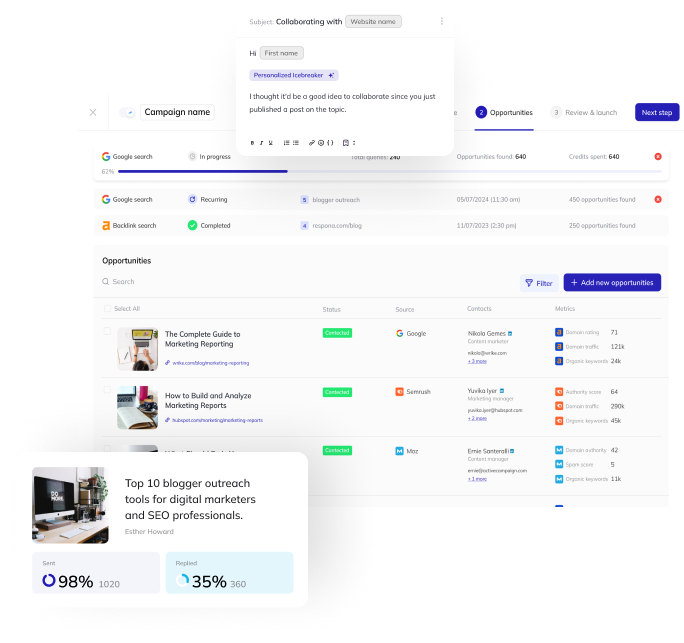According to OptinMonster, 60% of blogs write 1-5 monthly guest posts.
Despite being such a common strategy, guest posting still raises countless questions among beginner SEOs and link builders alike.
Today, we’ll be talking about:
- Whether you should write guest posts and/or accept them on your site
- How to find guest blogging opportunities and write good guest posting pitches
- Whether you should pay for guest posts or use a guest posting service
- Things you should avoid while guest posting
Let’s get into it.
- Should You Do Guest Posting and Why?
- How to Find Guest Posting Opportunities?
- How to Write a Good Guest Posting Pitch?
- Should You Pay for Guest Posts?
- Should You Allow Guest Posts on Your Site?
- Should You Use a Guest Posting Service?
- How to Write a Good Guest Post?
- What Should You Avoid While Guest Blogging?
- Now Over to You
Link building cheat sheet
Should You Do Guest Posting and Why?
Yes.
You should participate in guest posting for its SEO benefits – more specifically, links, organic traffic, and the ability to expose your content to a new target audience. .
Most websites that accept guest posts allow you to have a link back to your website in the guest author bio.
This helps direct some PageRank back to your site, and, over time, improve rankings and Domain Rating.
However, some guest posting sites mark the links in the content as “UGC”, or “Sponsored”.
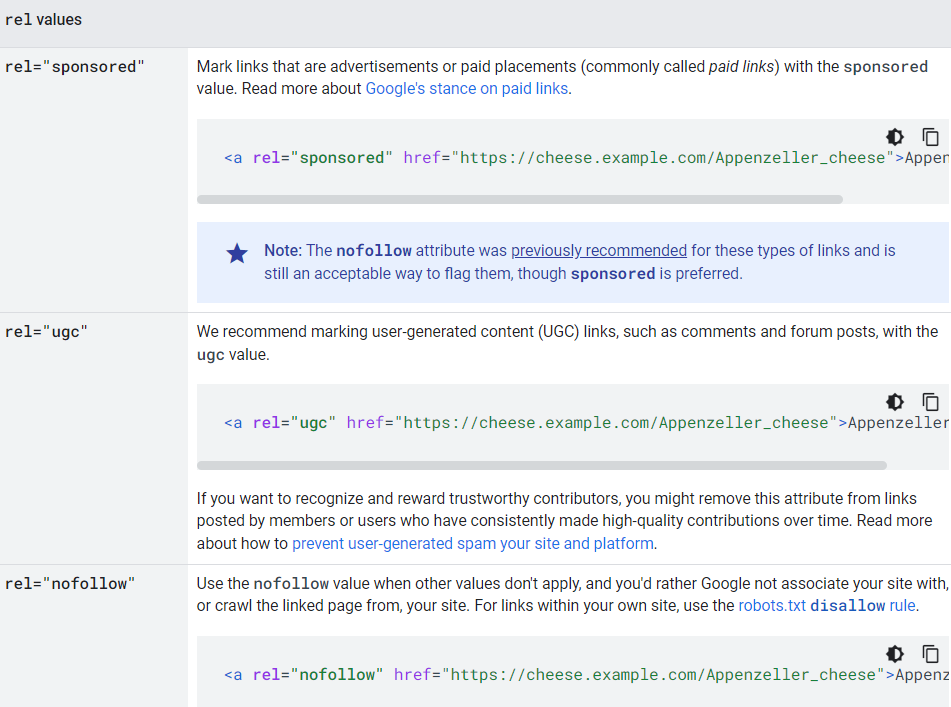
This essentially makes them the same as “nofollow” links, reducing their SEO value.
Even if that happens, guest posting is still worth it – as a way to establish yourself as an authority in your niche.
If people see your face at the bottom of countless guest posts related to a particular topic, they’ll go “Hey, this guy sure knows what he’s talking about!” – of course, as long as you’re providing quality content.
Another reason why guest posting is worth doing is the fact that guest posts are a great way to set up 3-way (A-B-C) link exchanges.
If you’re already running link building campaigns, offering your prospects an indirect link back to them from upcoming guest posts for a link from their site to yours is a smart (and safe) way of building backlinks.
This, and the fact that in addition to a single link in the bio, most free guest posting sites allow you 5-10 external links to other reputable sources in the content.
So, with one stone, you can generate up to 10 backlinks.
At least, that’s how we do it.
How to Find Guest Posting Opportunities?
There are two ways of finding guest blogging opportunities – the easy one, and the not-so-easy one.
I’m talking about, of course, finding sites with “Write for Us” pages and pitching guest content to a website that doesn’t necessarily have such a page.
Write for Us Pages
This is the “easy” approach – any website that has a “Write for Us” page is practically asking you to submit your post to them.
The upside to this guest blogging strategy is that there are tons of them.
The downside is that a lot of them can be link farms, take ages to publish your post, or only accept submissions through a contact form – which is far less effective than communicating with a team member directly.
To find these, all you need to do is plop intitle:”write for us” into Google search plus your target keyword.
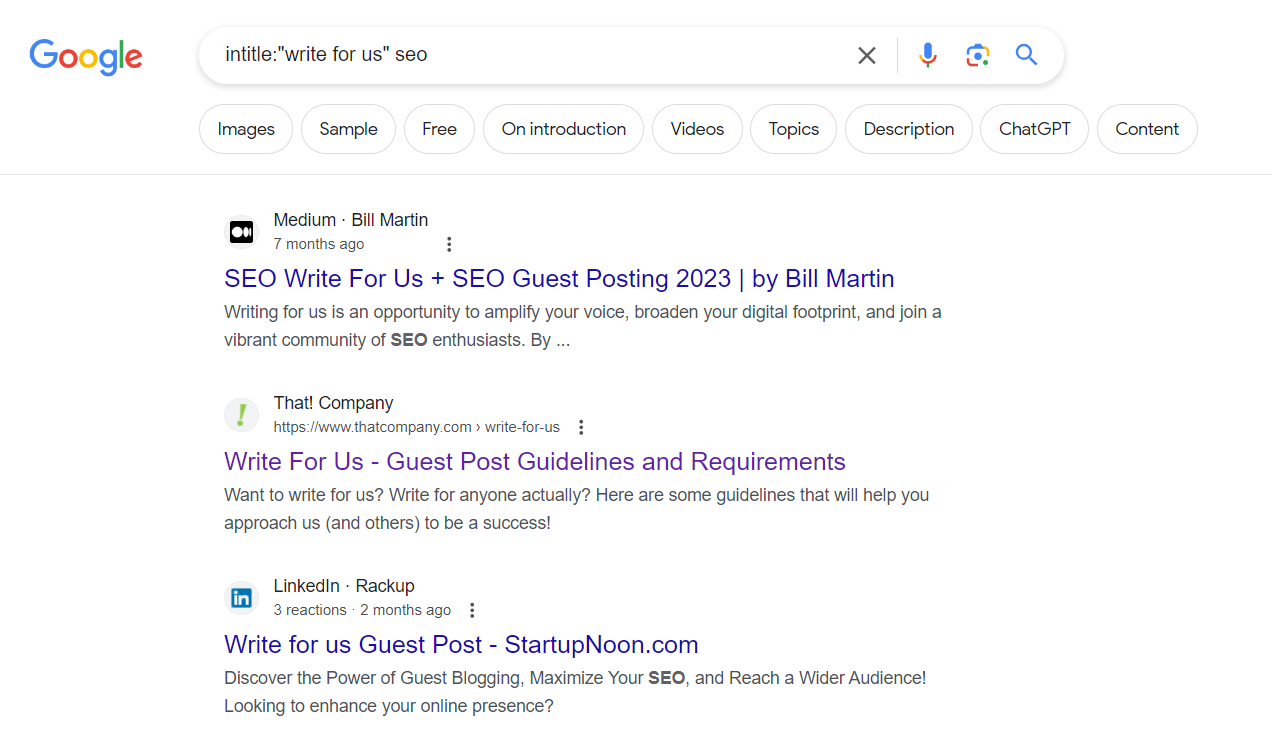
From here, just pick the websites you like and reach out to the site owner – either through the contact email provided on the page, or the contact form.
But, as you know, manual outreach is impossible to do at scale.
Respona’s here to help with its guest posting campaign template.
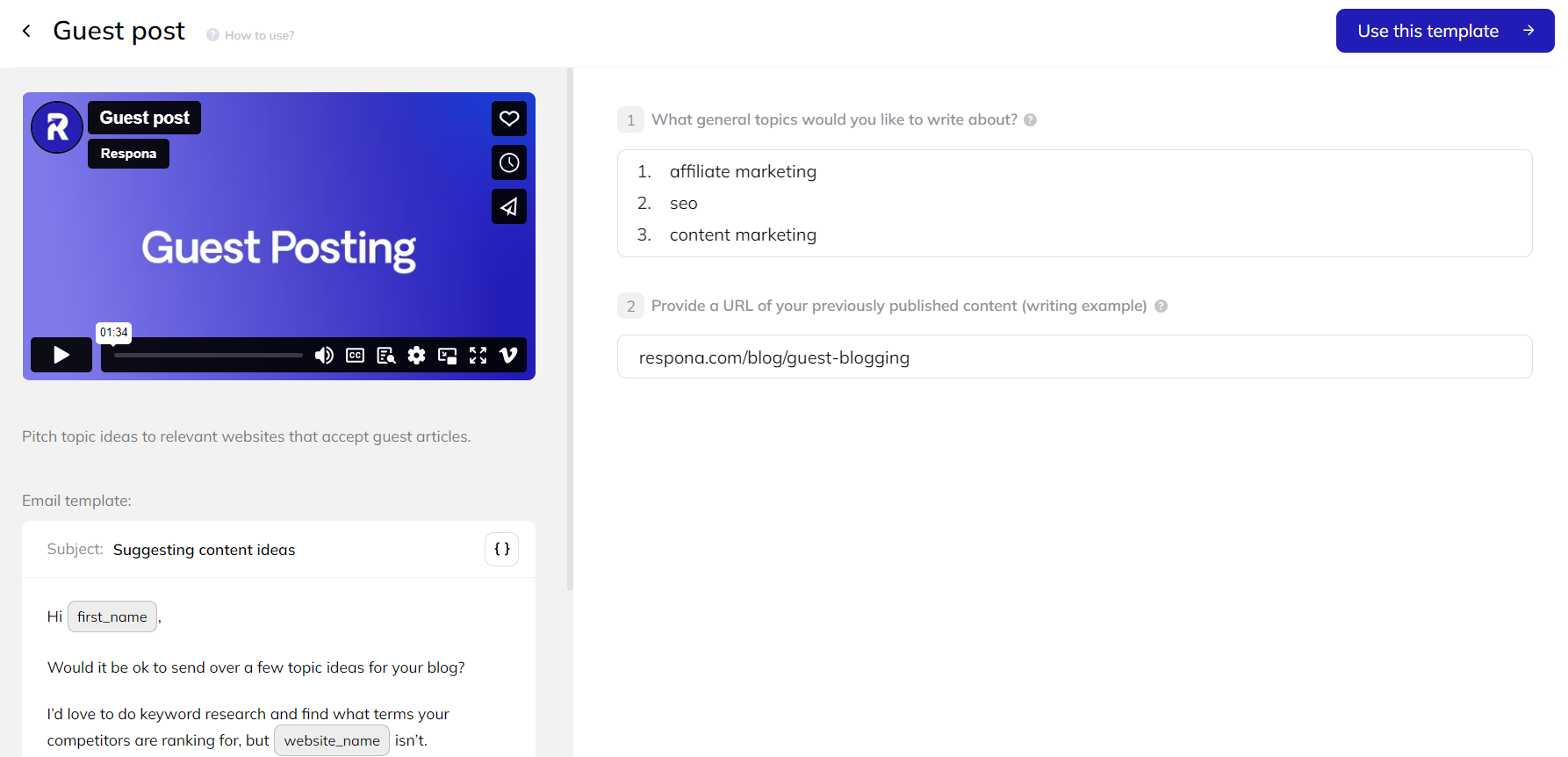
Just fill in your target keywords and an example of your previous guest blog post, and the tool will pre-set both your search criteria and your email sequence.
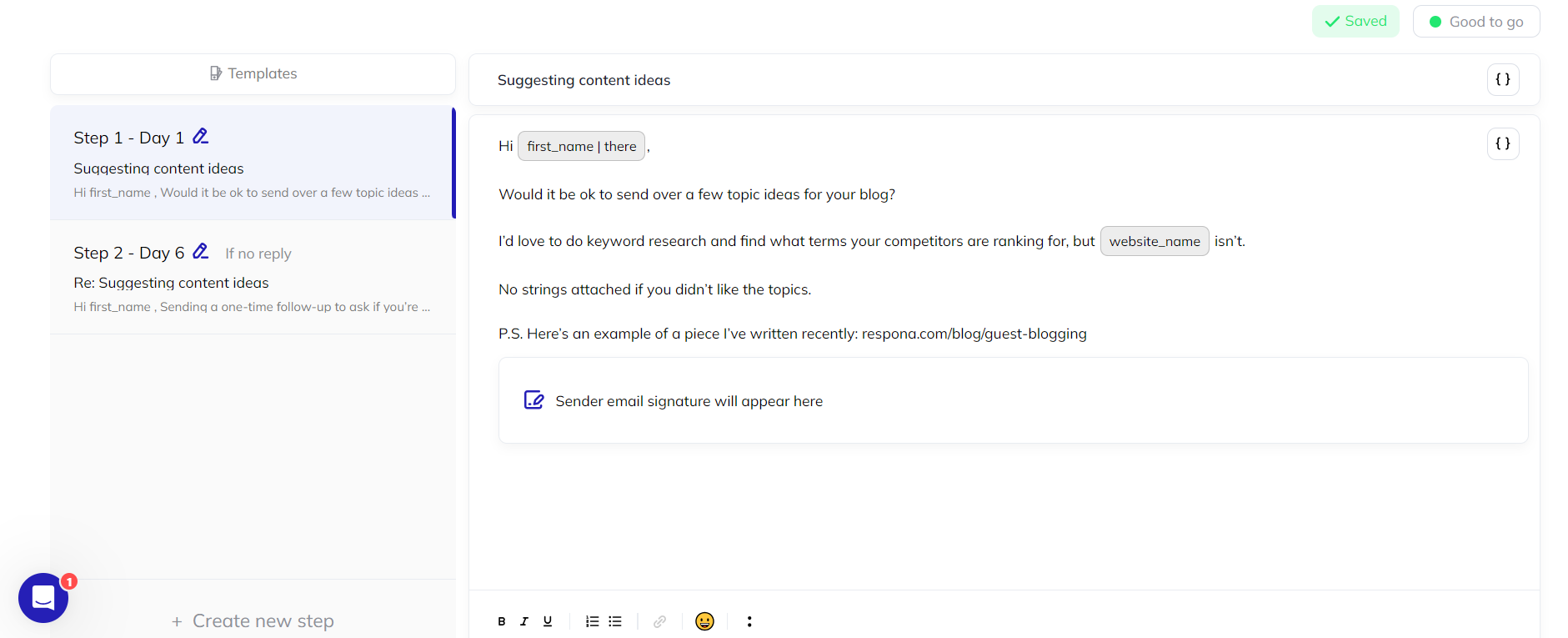
This is the default email template, but you’re more than welcome to create your own.
More on writing good guest posting pitches in the next section.
For now, let’s add an AI variable – the Icebreaker.
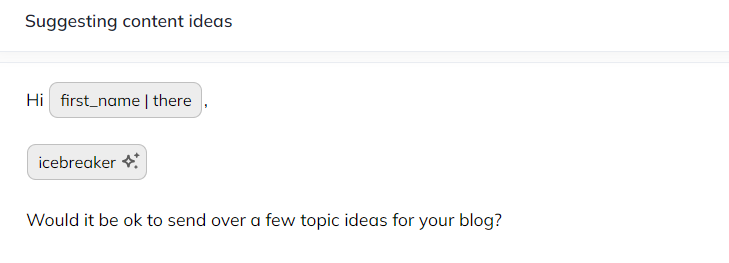
It will automatically generate unique personalizations for each guest posting opportunity in your campaign.
Click “Next” to get into Respona’s search engine.
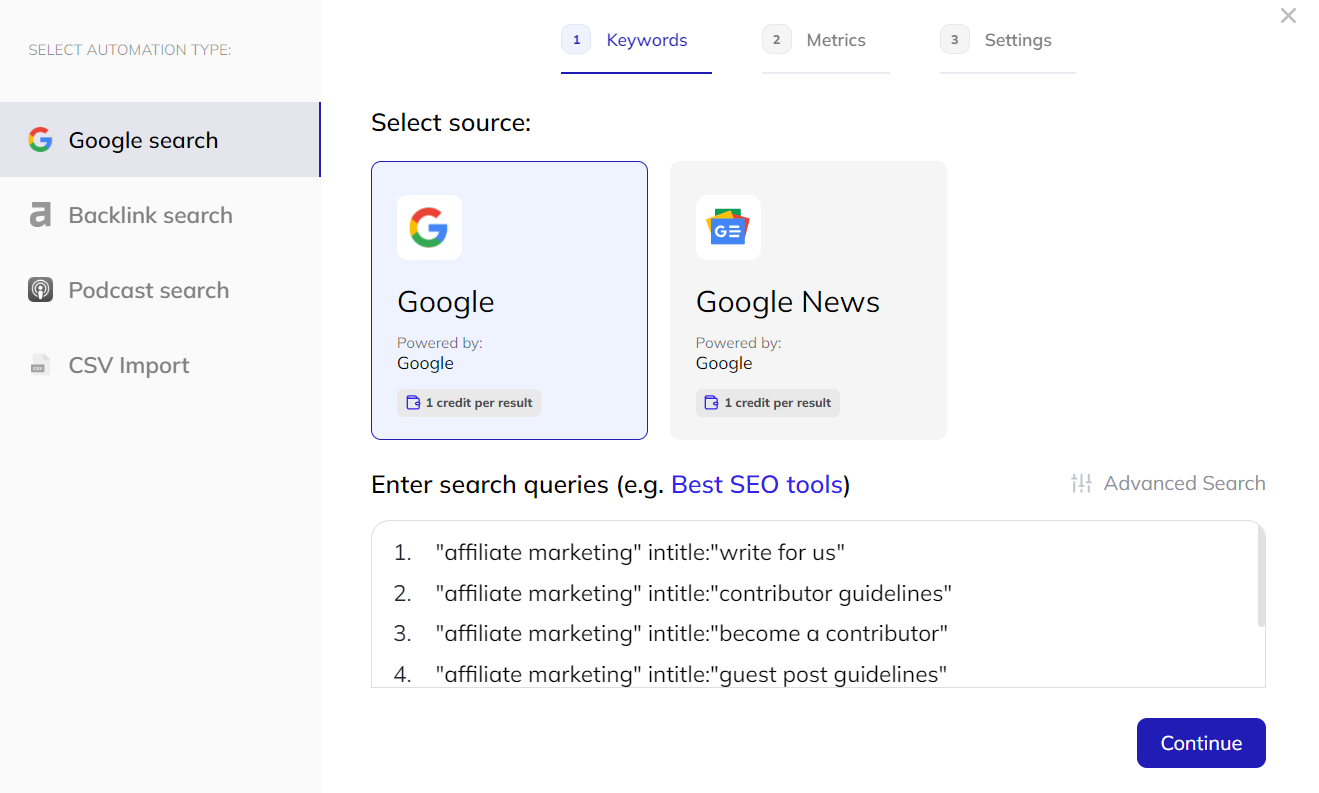
Because we used a campaign template, it’s already pre-configured to find the most common “write for us” page title variations like “become a contributor”, “write for us”, “guest contributors guidelines”, “submit guest post” etc. in your niche.
Click “Continue” again and set additional SEO filters to make sure all guest postingl opportunities are worth writing for.
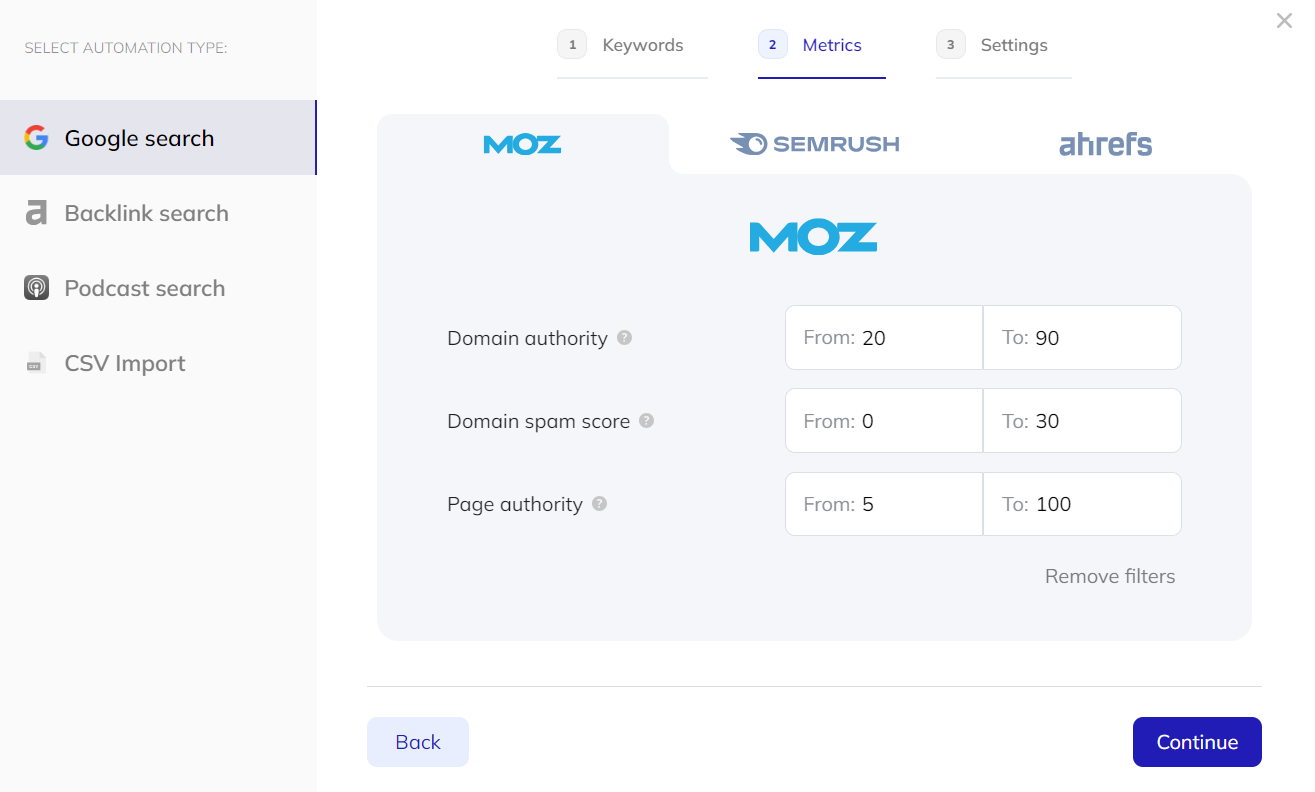
Click “Continue” once again for more advanced settings.
The first one is the contact finder.
It is also already pre-set to find relevant decision-makers – SEO and content managers, digital marketing managers, creative personnel, etc.
Of course, you can also change it to find other people at your companies too.
With it, you’ll be able to find real employee emails in bulk – as opposed to contacting the generic [email protected] that’s usually listed on the page, and have a much higher reply rate as a result.
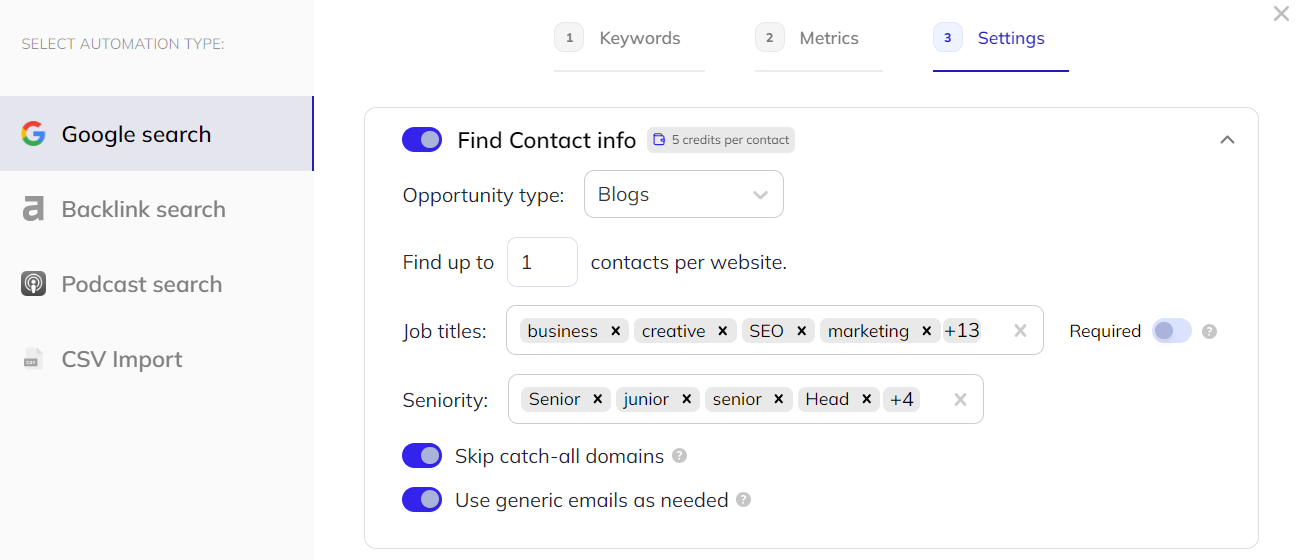
Next, let’s provide our AI personalizer with some additional instructions – such as to keep the reading level low, and use short sentences with minimal commas.

Last but not least, let’s also make the search recurring.
If there are any new “Write for us” pages published, Respona will automatically pull them to our campaign every few weeks.
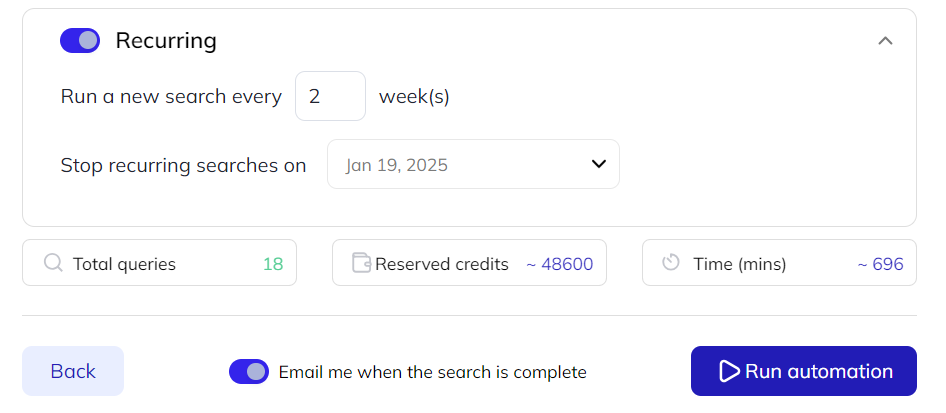
Run the automation – as soon as results start being found, they’ll show up on the screen.
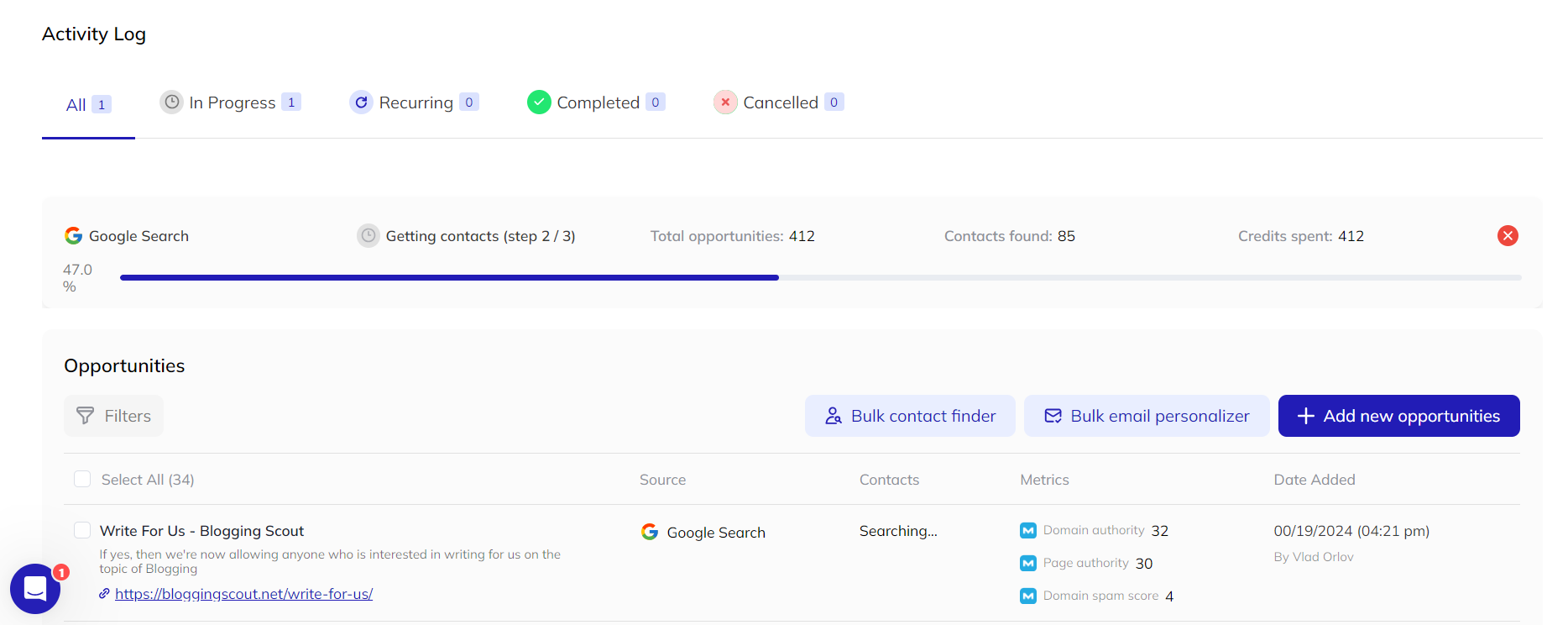
You don’t need to wait for the whole search to be completed – as soon as at least one result has assigned contact information, you can move right on to the next step: Review & Launch.
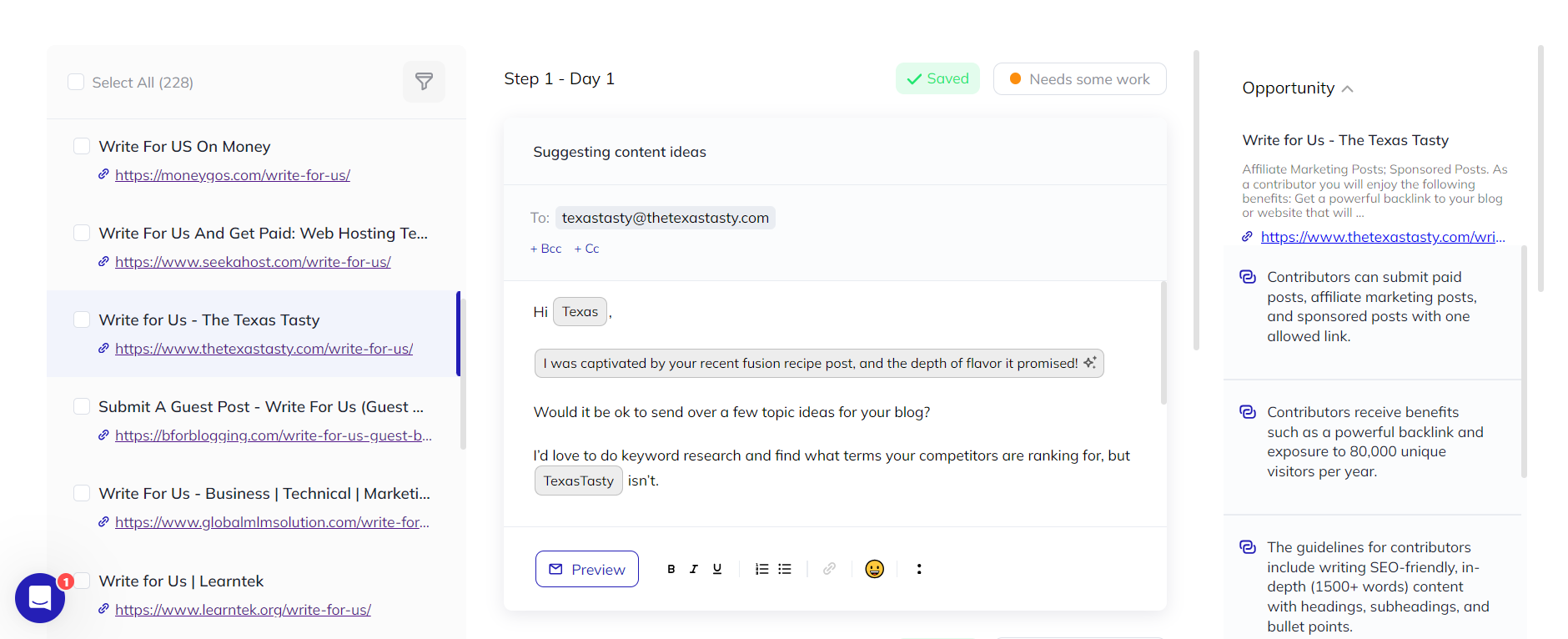
Here, you can review your AI personalizations and make final pre-launch adjustments.
In addition to email addresses, Respona also finds the LinkedIn profiles of your prospects.
So, to increase your chances of landing a guest post, we recommend sending them a connection request on social media as well.
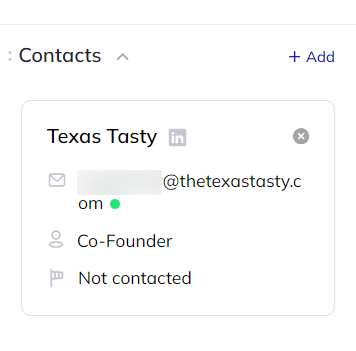
Once all emails are personalized and the campaign is launched, all you have to do is manage your replies, and write the actual guest posts once people start accepting your pitches.
More on that later.
Existing Collaborations
This is the “not so easy” approach to writing guest posts.
The theory behind it is as follows:
Even if your prospect doesn’t have a “write for us” page, but your guest post provides them with so much value they can’t refuse it, they have no reason to say “no”.
This is our preferred way to secure guest posts – and we don’t do any separate guest posting outreach.
Yes, our link builder always has new places to write for.
The challenge here, of course, is making that pitch irresistible.
How to Write a Good Guest Posting Pitch?
The keyword here is “value”.
It is quite a buzzword, so let’s break down how someone who doesn’t normally accept guest posts can be persuaded.
The biggest reason why websites accept guest posts is to cover as many keywords as possible – without as much of a time investment from their writers/editors.
The #1 reason why guest post pitches fail is because there is zero effort put into them.
Like this example:
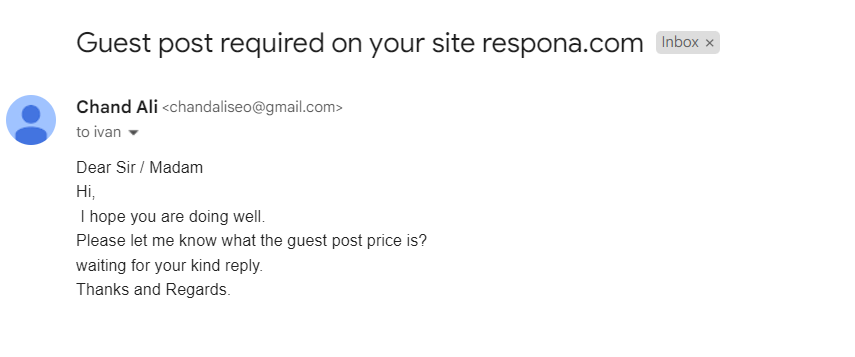
First up, we don’t have a “Write for us” page. Second, we don’t have a single guest post on our blog.
And this person is asking us what our guest post price is.
For a webmaster/content marketing/SEO manager to notice your guest post pitch, you need to cater directly to their pain point – a keyword gap.
Regardless of whether a site is openly a host blog, this is a great way to show that you:
- Have done your research
- Are knowledgeable about the “whys” and “hows” of guest posting from both sides
- Have a strong understanding of SEO
For this, you’ll need keyword tracking software like Ahrefs or Semrush.
Both have the Keyword Gap functionality, but we use Semrush so we’ll show that as an example.
Paste your prospect’s website into the keyword gap tool along with 1-2 competitors.
Another neat thing about Semrush is it auto-picks competitors for you, so you don’t have to manually look them up online for each prospect.
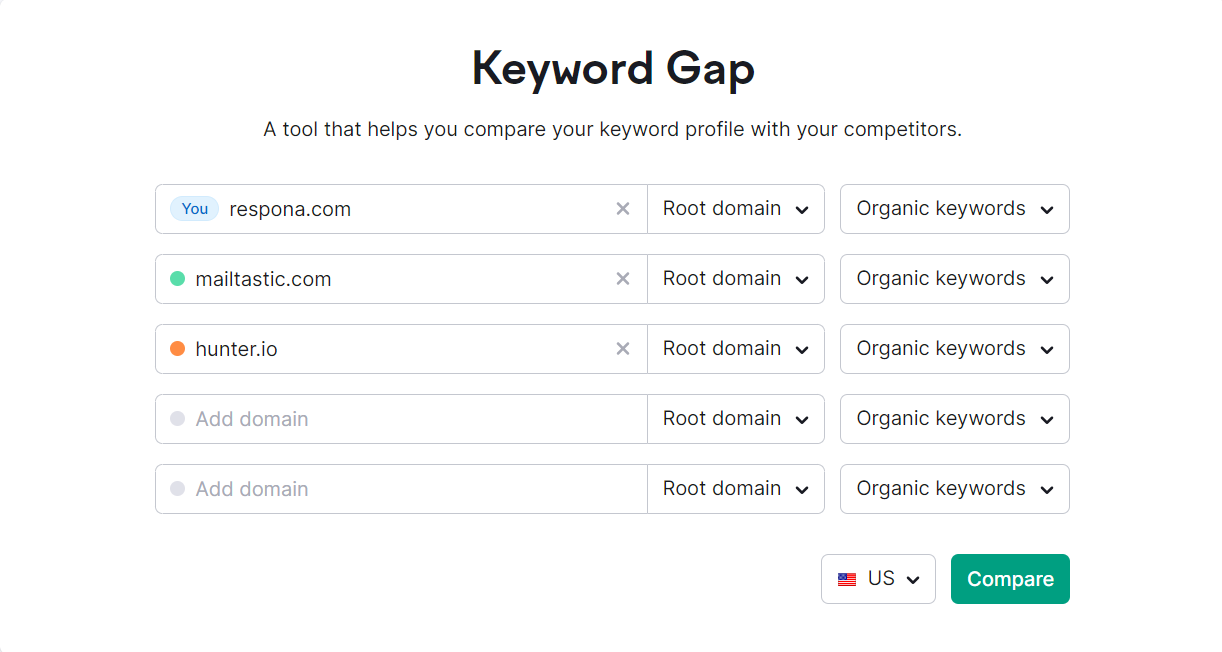
Hit “Compare”, and go down to the “missing” tab.
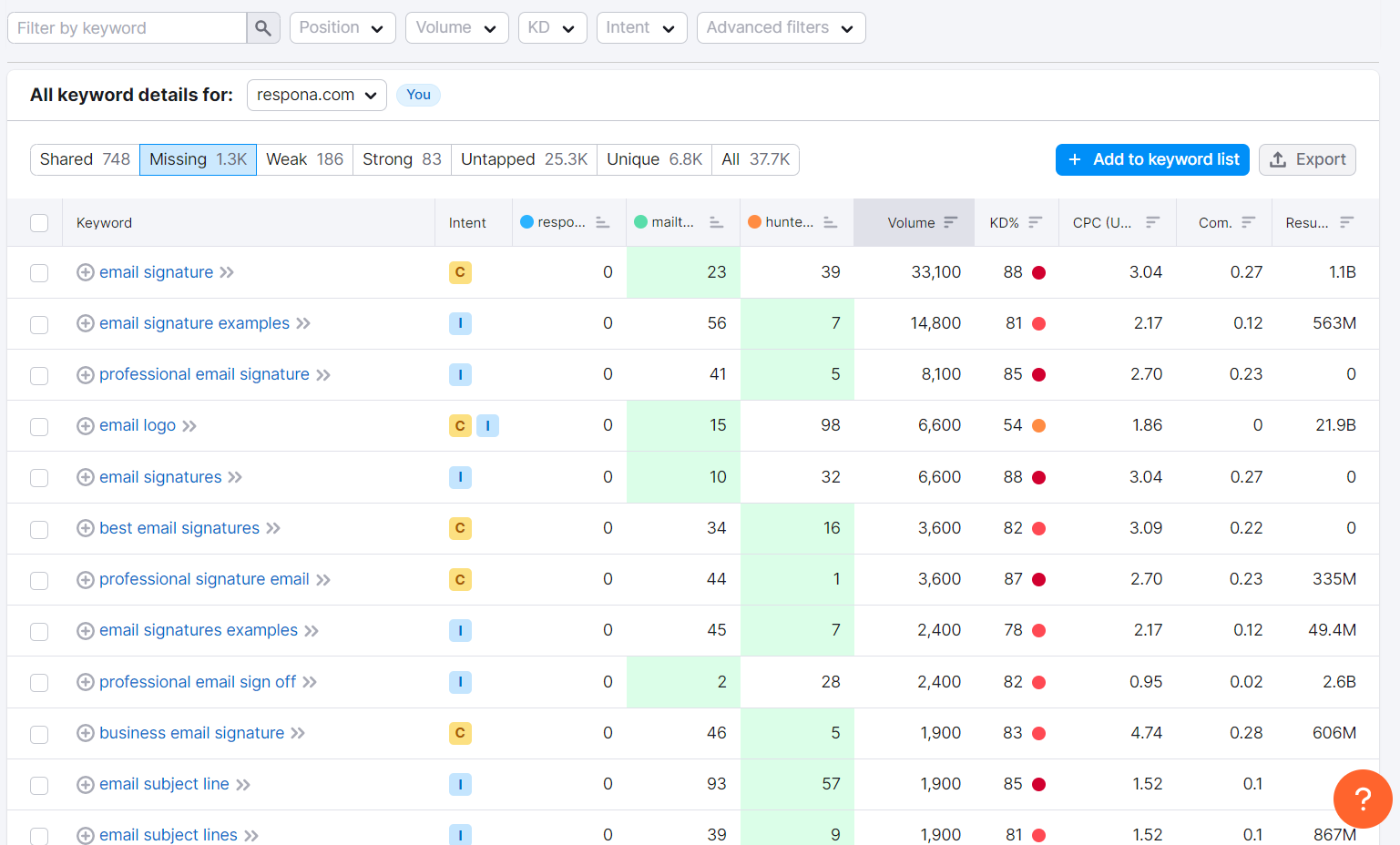
Boom. A list of all keywords that your prospect’s competition is ranking for but they aren’t.
Pick some keywords that are relevant to both you and them, and come up with 2-5 topics for a guest post.
Make sure to double-check your prospect’s site to make sure they aren’t already ranking for another variation of the same keyword.
Then, write your pitch!
Here’s a template that works for us:
Subject: Re: Original Subject
Thank you, {first_name}!
Would love to collaborate more in the future!
By the way, I was playing around in Semrush and noticed that your competitors [list 2 competitors] are ranking for [keyword] but you aren’t.
I actually happen to have a writer in house who is a [keyword] nerd and would love to write a high-quality piece of content covering that topic for you.
Let me know if you’re interested?
[sign-off]
Make sure to include a screenshot of the missing keywords from Semrush/Ahrefs as a bit of additional proof.
This pitch works especially well if you send it after wrapping up another collaboration with your prospect – like a previous link exchange.
Since you already have an established touchpoint, this pitch doesn’t come out of the blue.
And since you’re offering even more value to your contacts (and they’re under a good impression of you after a previous collaboration), they will be much more receptive to your pitch than a random site that openly accepts guest posts and gets hundreds of emails every single day.
We have secured over 50 free guest posts from sites that don’t have a “write for us” page using this exact method over the past couple of years.
Should You Pay for Guest Posts?
No, you should not pay for guest posts. Paid guest posts don’t have any SEO benefits.
The reality of cold outreach is that most websites that a lot of websites that you’ll contact will charge an “editorial fee” to either add your link or post your guest blog.

Our recommendation is to not pay for guest posts.
First of all, all paid links must have the “Sponsored” tag.
This tag essentially makes links “nofollow”, so it has little to no SEO benefit.
If you pay for a guest post and they don’t mark your post as “Sponsored”, or you are in direct violation of Google’s Webmaster Guidelines:

If you get caught, you may incur a Google penalty for your site, preventing it from ranking altogether.
Should You Allow Guest Posts on Your Site?
Yes, if you establish clear guidelines and enforce them.
Accepting guest posts on your site is an easy way to scale up content production and cover a much wider range of keywords without as big of an involvement from your own writers.
Even the largest of websites like Hubspot allow guest writers precisely because of that.
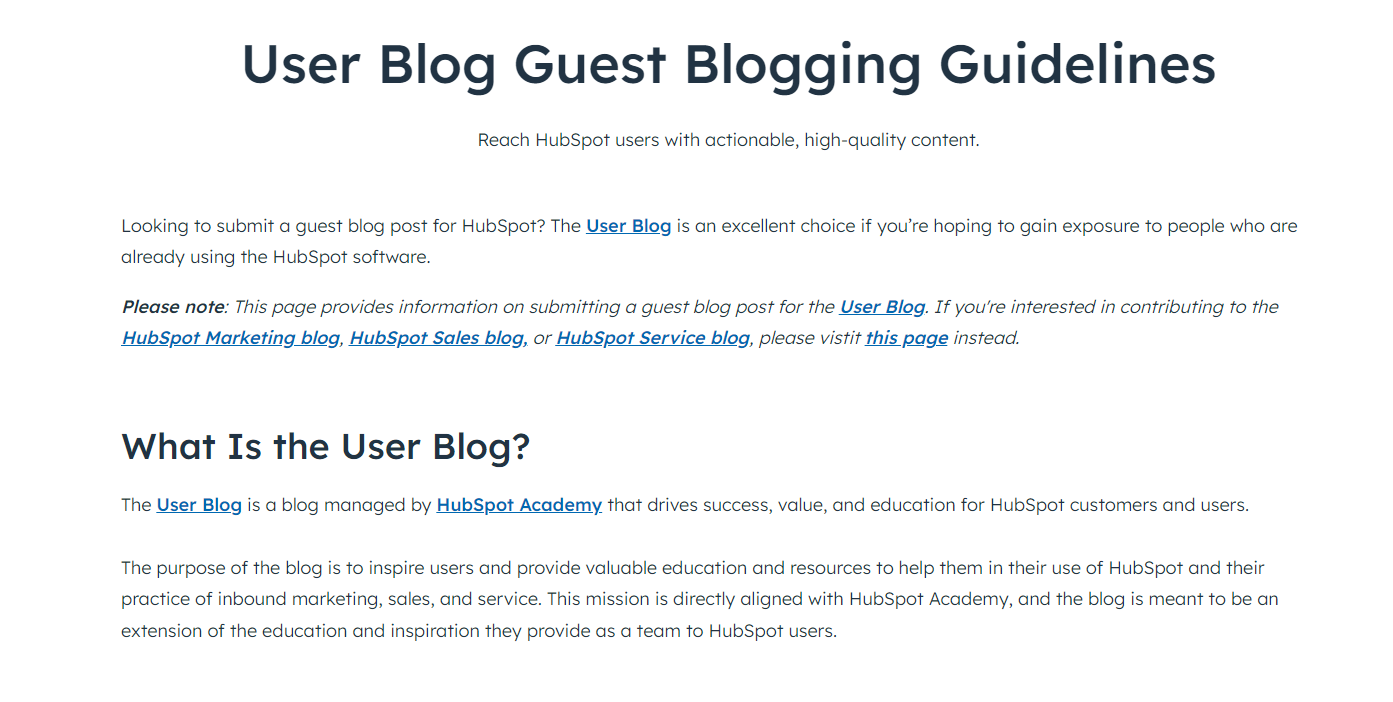
There is a caveat, however.
Obviously, the content must be of high quality to have a positive effect on your website.
While you may not have to write as much content yourself, you will need to review and edit each guest blogger’s submitted content much more heavily to ensure only the best is published on your site.
If you neglect this and allow people to post unoptimized, irrelevant guest posts just for the sake of covering the absolute maximum number of keywords, it’s not going to help your SEO at all.
Should You Use a Guest Posting Service?
It depends on the type of service.
If it’s a self-publishing service where you submit your content and it’s automatically posted somewhere for a fee, then no – you should avoid them.
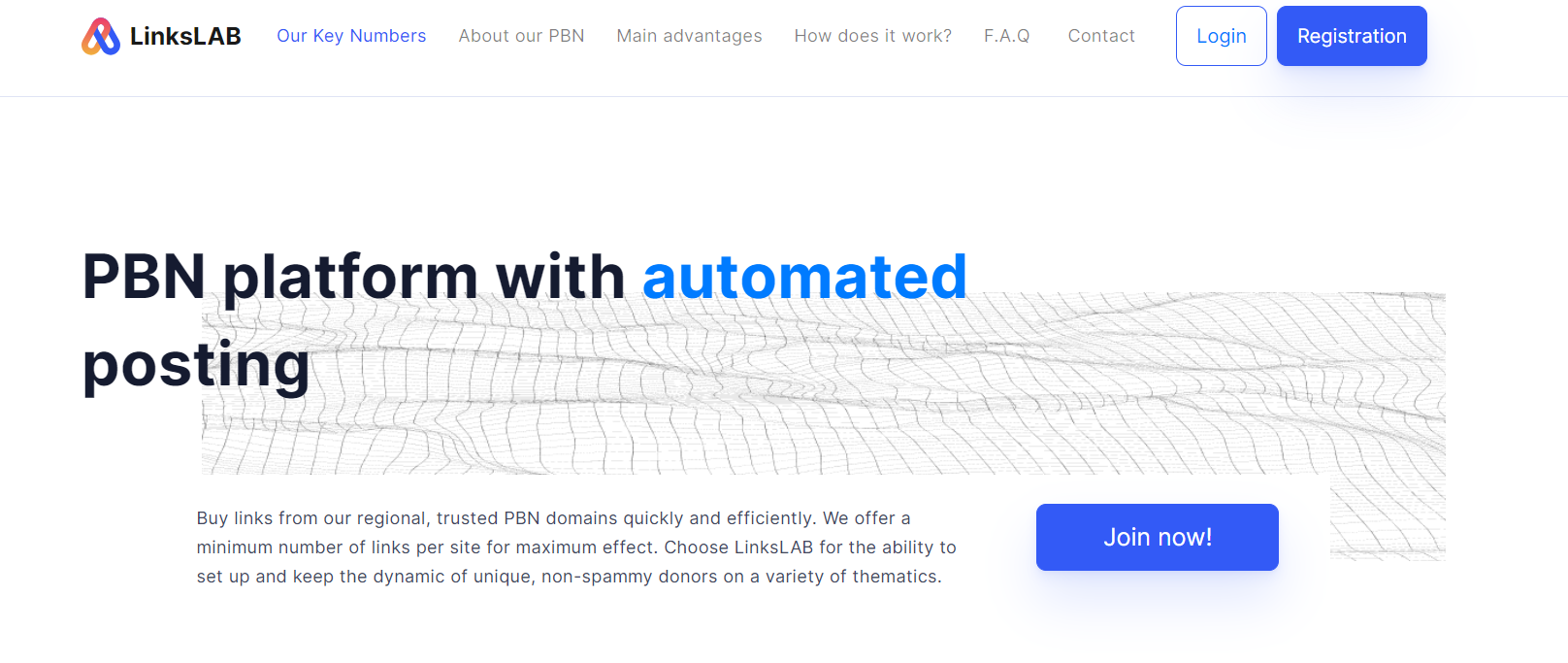
If it’s a white-label done-for-you service that writes guest posts by hand, and then uses cold email outreach to secure high-quality placements on websites that don’t charge for guest posts, then it’s a different story.
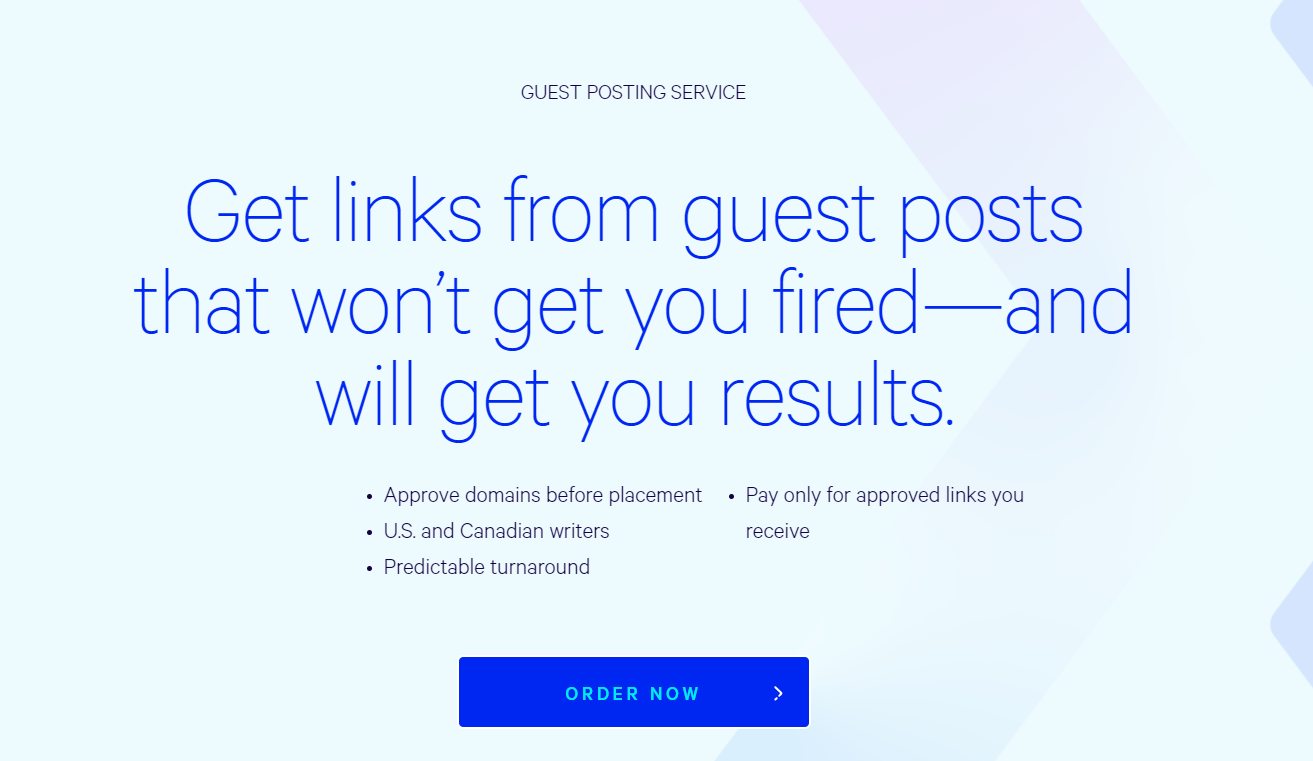
However, you should only use these guest posting and link building services if you don’t have the in-house capacity to write and publish guest posts yourself.
Our recommendation is to do the writing and outreach in-house with the help of a blogger outreach tool to have the most control and flexibility of the whole process.
How to Write a Good Guest Post?
Much the same way you would write a regular blog post on your own website.
The only difference here is typically the size- most guest posts are around 1,500-3,000 words in length.
It needs to be informative, and to the point. Keyword optimization would also be a huge plus to your karma.
Every website has unique guidelines, so you should reference them before writing.
But, in general, a “good” guest post covers the chosen topic as well as possible.
Now, should you use AI to write guest posts?
If you have access to it, sure – AI powered writing tools can be of great help with writing outlines and generating the bulk of your content.
Just make sure to proofread, edit, and add some personal touch to it so it’s not just a copy-paste straight from ChatGPT.
What Should You Avoid While Guest Blogging?
Now, there are quite a few things to avoid during your guest posting campaigns.
More specifically:
- PBNs and link farms (click through the website and read through their content; if it’s all user-submitted articles with poor information and chock-full of links, avoid)
- Paying for guest posts
- Overly saturating your guest posts with external links
- “Write for us” pages that only accept guest posts through contact forms – they typically take too long to respond and publish
Link building cheat sheet
Now Over to You
So, there you have it.
Our favorite way to do guest posts is to wrap up existing link collaboration and pitch a guest article afterward, so we don’t have to do any separate guest post outreach.
if you need help with your own link building and guest posting campaigns, don’t hesitate to start your 14-day free trial with Respona to see how we can help.





